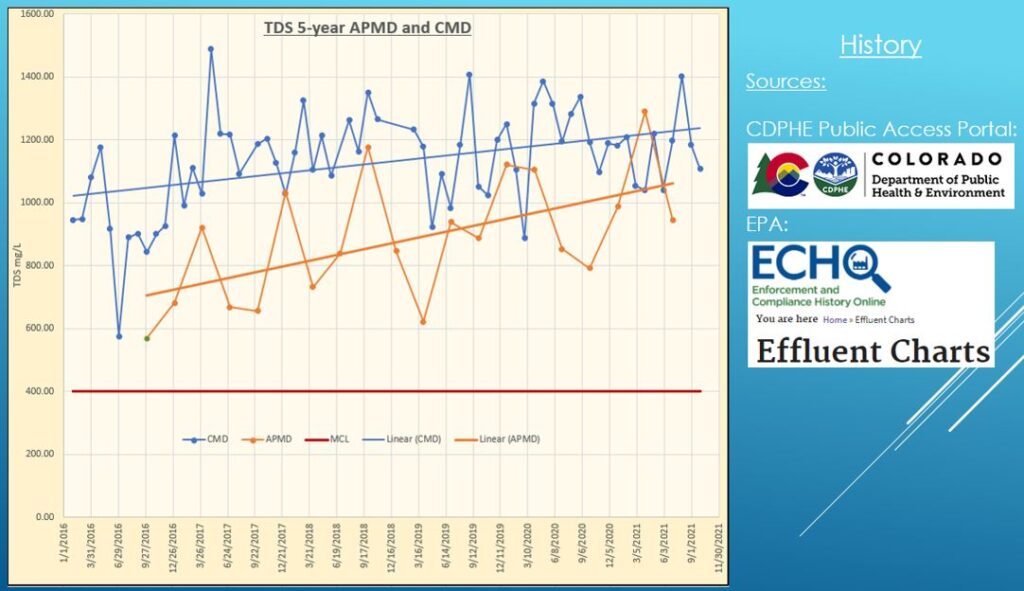Total dissolved solids (TDS) is a measurement of the concentration of dissolved ions that can be found in all non-pure water sources and is a general indicator of water quality. These ions include common anions chloride, sulfate, and carbonate/bicarbonate; and metals sodium, calcium, magnesium, potassium and iron. Other less common ions may also be present. There are many sources including geologic formations in the watershed, wildlife activity, and human activity. Human sources include discharge of wastewater from individual and community water treatment systems, stormwater runoff from developed areas, and road de-icing. See the separate page for details about the CAC Water Resources Study/Action Team water quality monitoring activities.
There are several types of standards are set for TDS in water. The federal secondary standard for TDS in drinking water is 500 milligrams per liter (mg/L) and Colorado has set a groundwater standard of 400 mg/L. The Colorado standard in groundwater comes into play with discharge of treated wastewater to groundwater. Conifer Metro District (CMD) and Aspen Park Metro District (APMD) both have systems that discharge treated wastewater to groundwater.

Conifer is a well-based community, so recharge to the fractured-rock aquifer is crucial to sustainability. Reverse Osmosis (RO) systems are used by several CMD users (Safeway, etc.) to reduce TDS levels for customers. The brine removed from the water, however, is returned to the collection system and recharged into the aquifer.
CMD has a permit to discharge through its exfiltration gallery but has been exceeding the 400 mg/L standard since it was imposed. The district has been under an order from the Colorado Department of Public Health and Environment to remedy the situation. To address the TDS exceedance, last year CMD considered a surface discharge of the processed effluent. Currently CMD is requesting a variance to allow discharge to groundwater at concentrations above the current standard of 400 mg/L. Quoting from the application for variance by the AquaWorks, CMD consultants:

To achieve compliance with the CDPHE Discharge Permit, CMD is requesting a change in limits to 1663 mg/L.
During the CDPHE open public comment period, the CAC Water Team suggested that TDS levels above the SMCL require periodic analysis of the TDS composition as opposed to a violation and cease and desist.
